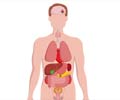In India and other south Asian countries, one in 25 people carries a gene mutation that causes heart failure, a new research has found.

Sadayappan has studied the gene and protein for 15 years.
Investigating the protein could provide 'a better understanding of the mechanics of heart function during health and disease,' Sadayappan and first author David Barefield said.
Previous studies by Sadayappan and other researchers found that about 4 percent of people who live in India, Pakistan, Sri Lanka, Indonesia and Malaysia carry the mutation. Carriers have about a 90 percent chance of developing heart failure after age 45.
About 60 million people worldwide, including about 40 million Indians, carry the mutation. (Sadayappan, who is from India, is not a carrier.) Sadayappan said the mutation likely arose in a single person roughly 33,000 years ago, and spread throughout south Asia.
The gene encodes for a protein, called cardiac myosin binding protein-C (cMyBP-C), that is critical for the normal functioning of the heart. In the mutated gene, 25 base pairs (DNA letters) are missing. As a result, the tail end of the protein is altered.
Advertisement
In younger carriers, the heart can compensate for this defect. But as the person ages, his or her heart is no longer able to compensate. Heart muscle becomes inflamed and does not work well, a condition called cardiomyopathy.
Advertisement
There is no current treatment to prevent heart failure in people who carry the mutated gene. However, a heart-healthy diet and exercise can delay the onset of heart failure, and heart failure drugs can manage symptoms.
Sadayappan said stem cell therapy could be a possible treatment. Stem cells would be taken from a patient's heart, genetically engineered to replace the mutated gene with a healthy gene, and then injected back in the patient's heart. But such stem cell therapy has not been tested. Nor is there a commercial test for the gene, Sadayappan said.
But Sadayappan and other scientists are actively researching how cMyBP-C functions. And improved understanding of this crucial protein, Sadayappan said, could lead to new drugs to treat heart failure.
The study has been published in the Journal of Molecular and Cellular Cardiology.
Source-ANI















